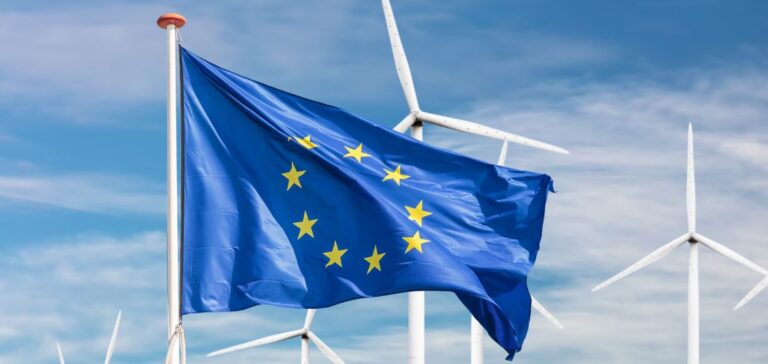The European Union is collectively advancing towards its 2030 climate and energy commitments, according to an assessment published by the European Commission on May 28. The revised National Energy and Climate Plans (NECPs) submitted by Member States show marked progress since Brussels issued recommendations in December 2023.
Targets nearing alignment with climate legislation
The assessment of final plans indicates that the Union could achieve a net greenhouse gas emissions reduction of 54% by 2030, compared to 1990 levels. The European Climate Law sets a reduction target of 55%. This progress remains contingent upon full implementation of existing and planned national and EU-level measures.
The Commission also notes a growing investment trend in low-carbon industrialisation, driven by initiatives such as the Clean Industrial Deal and the Affordable Energy Action Plan. These instruments aim to help Member States structure long-term and nationally anchored energy solutions.
Coordinated investments and outstanding plans
The Commission emphasises the need to translate commitments into tangible outcomes, by directing public funding towards energy transformation projects. It also encourages regional and European cooperation, deemed essential for investment stability and the internal market’s competitiveness.
To date, three Member States – Belgium, Estonia and Poland – have not yet submitted their final NECPs. However, their targets were incorporated into the overall assessment. Slovakia’s final plan, submitted on April 15, is currently under individual review by the Commission.
Governance tool and post-2030 revision
NECPs, introduced under the Governance Regulation of the Energy Union, are mandatory instruments that must be regularly updated by Member States. They allow the Commission to monitor progress towards climate neutrality and energy security objectives.
A revision of the regulatory framework is already planned to align the tool with post-2030 requirements. The Commission will issue a new legislative proposal in the coming months. Twenty-three national plans have already been individually assessed, with accompanying implementation guidance.






















